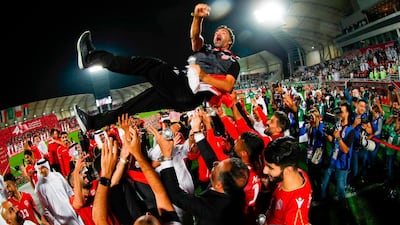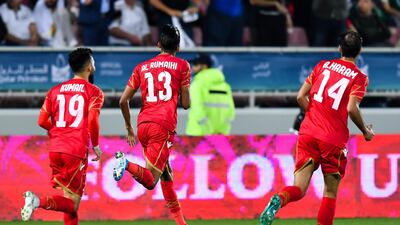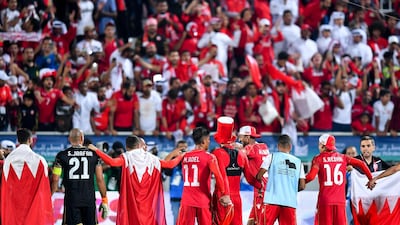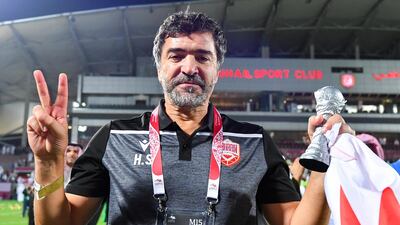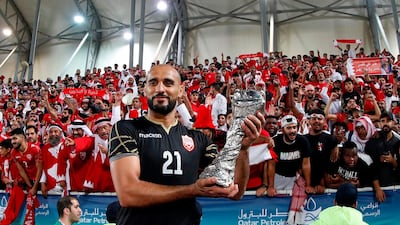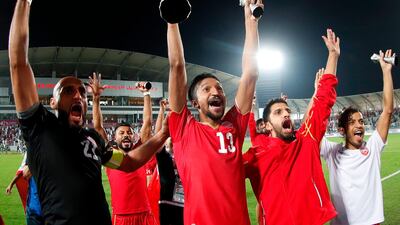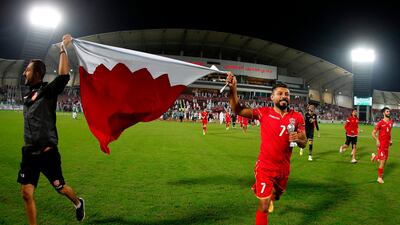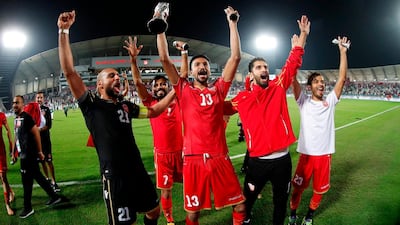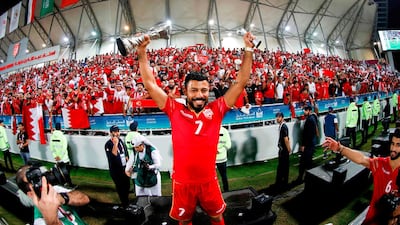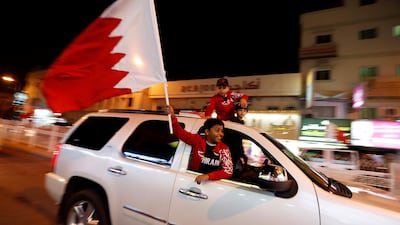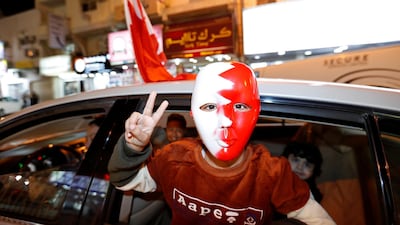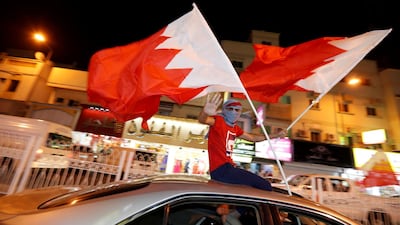Bahrainis took to the streets around the capital of Manama to celebrate the team's first-ever Gulf Cup title success.
Mohamed Al Rohaimi's goal on 69 minutes gave Bahrain a 1-0 win over Saudi Arabia at the Khalifa International Stadium on Sunday.
Salman Al Faraj had the chance to give Saudi Arabia the lead in the 12th minute but the Al Hilal midfielder fluffed his lines from the penalty spot.
Bahrain secured the title at their fifth attempt having lost four previous finals.
The UAE failed to negotiate the group stage with a record of two defeats and one victory - a 3-0 win over Yemen in their opener. Dutch manager Bert van Marwijk was relieved of his duties soon after the Emirates' exit was confirmed.
Above is a selection of Bahrain and their supporters celebrating winning the 24th Arabian Gulf Cup. To move on to the next photo, click on the arrows, or if using a mobile device simply swipe.
